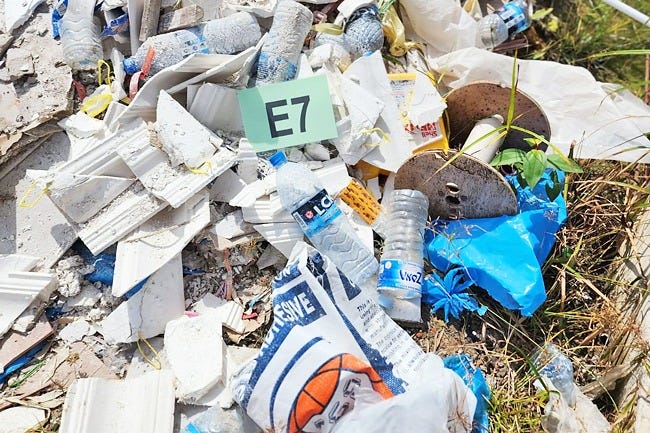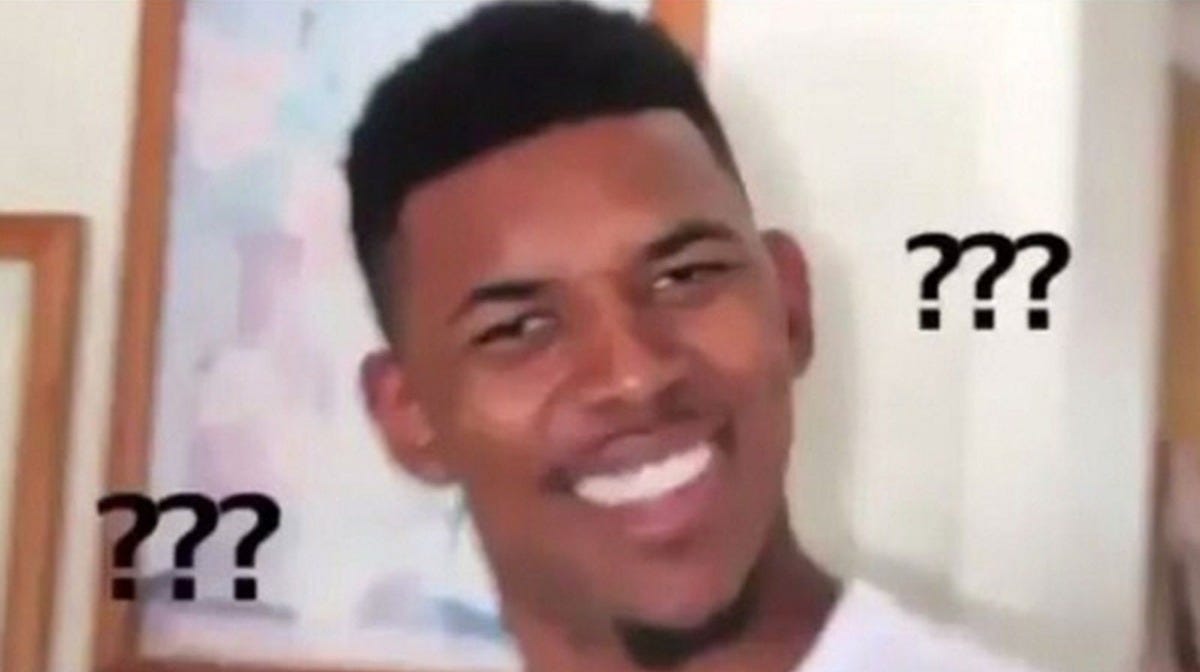
Hey there! Mutiara here with another Southeast Asian deep dive.
This time, we're heading to Brunei Darussalam, the tiny, oil-rich sultanate tucked away on the island of Borneo. 🇧🇳
If we would describe Cambodia's approach to circular economy as “a refreshingly honest journey,” we have a quiitee different way to describe Brunei's journey.
It's a mouthful one, but let's just say that Brunei is a wealthy nation that's been hitting the snooze button on circular economy. Or in sustainability in general.
Oil money has a funny way of making environmental problems feel optional. Until they're not.
💡 The reality check for Brunei: Their main landfill will be full by 2030. Their backup plan? A waste-to-energy plant that probably won't be ready until 2029.
That's one year of buffer time. But for real, how does Brunei plan to handle its waste amid the gap year?
Brunei's current waste challenges
⛽️ Oil is king: 60% of GDP comes from oil and gas. 90% of exports, too. When your economy runs on fossil fuels, talking about "going circular" gets complicated fast.
🗑️ The waste problem: Tutong landfill is 70% full. No backup plan. No circular strategy just yet. Just hope that the incinerator arrives on time 🤲
♻️ The recycling gap: 11.3% recycling rate. To put that in perspective, that means almost 9 out of 10 items that could be recycled just... aren't. It's giving "we'll figure it out later" energy.
🌊 The floating truth: They clean up 1,300 kg of trash from waterways, and it eventually floats back. The problem isn't the cleanup - it's everything upstream. No circular economy yet, but hey, at least we've got circular waste for now.
What can we say about Brunei's circular economy status then? It's a huge work in progress.
Policy landscape looking pretty scattered
Here's the thing about Brunei's approach to circular economy: they're kinda trying, but they're also kinda not really trying.
🤙 What exists:
Brunei Vision 2035 prioritises sustainable development with a focus on carbon sinks (500,000 trees by 2035) and marine conservation
New Environmental Protection and Management Act 2022 which strengthens penalties for illegal dumping (up to BND $30,000 fines)
National Climate Change Policy which includes a "Forest Cover" strategy to enhance carbon sequestration
Partnership with UK on green economy (arguably, it's all mostly talk though)
🙅♀️ What doesn't exist:
No dedicated circular economy law or legislation
No extended producer responsibility (EPR) framework for plastics/packaging
No mandatory waste sorting at the household level (it's voluntary for now)
The government has climate policies and waste policies. They just don't talk to each other.
In other terms, it's sort of like having a fitness plan and a diet plan created by a nutritionist and a fitness coach who've never met.
Lack of movement from civil society, driven by corporate campaigns
Brunei's environmental movement, however, is very fascinating for us.
It's mostly driven by banks and corporations, not angry citizens.
What do we mean by that? Well, the corporate cheerleaders so far:
Bank Islam Brunei Darussalam (BIBD) helps small businesses to pledge money for trees
Youth programmes, such as BELIA Brunei Program, try to create environmental leaders
The public response: Mixed at best.
Like we said before. They organise waterway cleanups. Take photos. Write press releases. The trash comes back. Rinse and repeat.
Here's what's actually happening: This is all surface-level solution for systemic problems.
You can't cleanup your way out of broken waste management.
Economic reality of an oil state to become circular
Here's the thing about Brunei's economy. It's an oil state trying to figure out what comes next.
Oil and gas dominate everything - 60% of GDP and 90% of exports.
There's one facility that converts old tires to oil, which is pretty cool, but it's tiny compared to the sector that still produces 90% of the country's pollution.
When your main industry is literally fossil fuels, circular economy conversations get awkward fast.
Everything else feels like side projects.
Agriculture has some green farming initiatives, but they're limited in scale. Fisheries are experimenting with aquaponics, but it's still niche. Finance and transport sectors are growing, which is good news, but they're not driving any circular transformation.
Diversification of economy sounds promising on paper as non-oil sectors grew 4.5% last year.
It's still good news, but it's traditional economic diversification - not the circular economy transformation the world needs.
The recycling industry exists but depends on global commodity prices. When prices drop, the whole thing becomes uneconomical.
Infrastructure reality cutting it dangerously close

Now that we have a bit of idea about it, let's do a quick math to see the bigger picture.
Brunei's main landfill is 70% full and will hit capacity by 2030. Their backup solution is a waste-to-energy plant that won't be completed until 2029.
That leaves exactly one year of buffer time for a country that usually plans decades ahead.
Also, illegal dumping continues despite new fines. Four companies got caught in December. The fines ranged from $500-$2,000, so in other words, it's just pocket change to fork out for them probably.
How is Brunei doing compared to ASEAN neighbours?
It's kind of surprising but not really super surprising when I research into Brunei's circular economy journey, tbh.
When you look at what's happening across the region, the contrast becomes pretty stark.
As a quick recap for all the ASEAN countries we've covered so far:
🇲🇾 Malaysia has recycling rules and ambitious 2030 targets.
🇸🇬 Singapore runs advanced waste-to-energy systems and treats the whole country like a circular economy testing ground.
🇵🇭 The Philippines managed to pass progressive waste laws despite serious budget constraints.
🇰🇭 Even Cambodia, a less-develop nation, has better circular strategies with measurable goals and honest timelines.
And then there's Brunei, still trying to figure out basic waste sorting.
Having Brunei as the wealthy neighbour with such a different reality is a little bit disappointing.
Here's a country with all the resources in the world, yet it's moving slower than neighbours with far tighter budgets.
ASEAN has collective circular economy goals for the region, and Brunei risks becoming that one group member everyone has to wait for.
And if you like irony, this basically reads that Brunei, the richest per capita in the region, is yet the least prepared for a circular transition.
The kingdom's future depends on waking up soon
Brunei's circular economy story has barely started. Right now, it reads more like an outline than an actual plan.
But maybe it's not fair to just focus on the downsides. This situation actually presents some unique advantages.
Brunei has wealth, a small population, stable institutions, and strong international partnerships. The UK framework they've signed provides a solid roadmap.
Unlike other countries, they're not dealing with decades of bad infrastructure decisions.
But advantages don't execute themselves.
The challenges are real and interconnected. Scattered policies, deep oil dependency, and infrastructure gaps create a perfect storm that can't be solved by throwing money at individual problems.
These issues need systematic solutions, not piecemeal fixes.
Here's the opportunity though - Brunei could actually skip the messy retrofit phase that other countries are struggling with.
They have the chance to build circular systems from scratch, without legacy constraints holding them back.
They get to design a city from a blank canvas instead of trying to renovate one built in the 1800s.
But then there's also the question they must answer first: Do they want to?
For a nation known for careful planning, that 2030 landfill deadline is kind of a red flag. Six years isn't a lot of time in infrastructure years.
Brunei has everything it needs to lead ASEAN's circular economy transition. Resources, stability, international partnerships.
They just need to stop hitting snooze.
The alarm is ringing. 2030 is coming whether they're ready or not.
— Mutiara from SEArcularity
Wherever you may be in the world, do you have any environment- or circularity-related stories to share? Comment them down below!









What a great story, thanks for sharing your very insightful and interesting circular economy updates from Asia!